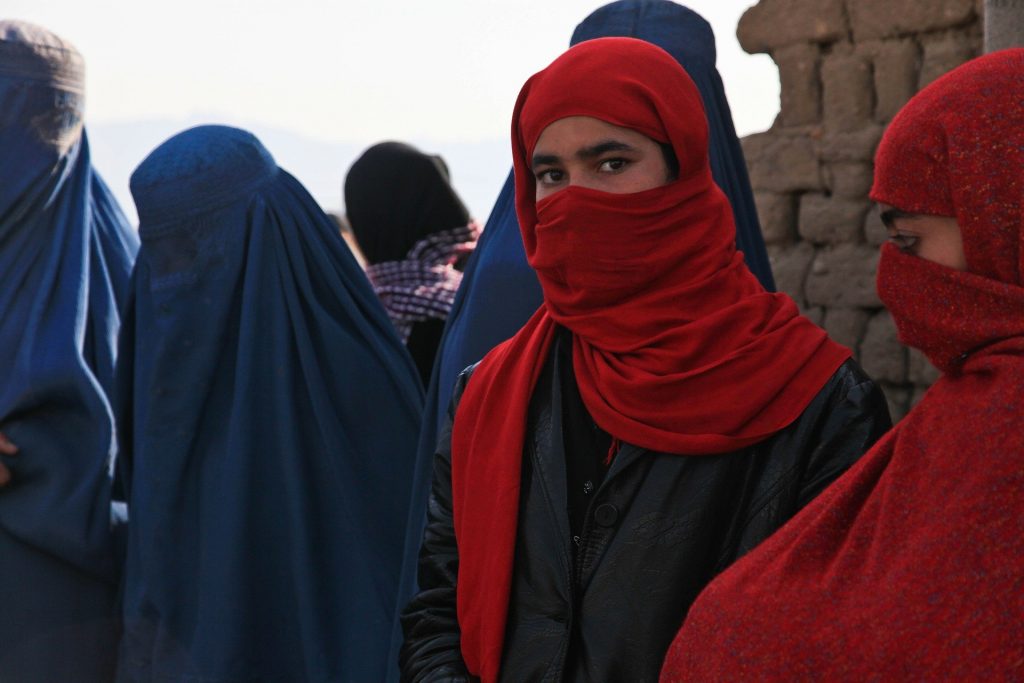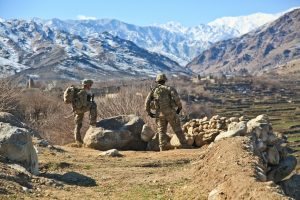By Amjad Khan
In the immediate aftermath of the 911 attacks in 2001, the rationale for going into a Taliban governed Afghanistan, in order to dismantle and eliminate al-Qaeda infrastructure, had merit. The US had just experienced the worst terrorist attack in its history, the Taliban was a widely despised organisation and the international community had every reason to believe al-Qaeda was planning further attacks.
The Taliban also had an appalling human rights record and their treatment of women was enough to make the totalitarian, theocratic Republic of Gilead [in Margaret Atwood’s dystopian novel The Handmaid’s Tale] seem like a bastion of gender equality. However, going in was the easy part, knowing what to do once the Taliban had been removed proved to be far more complicated.
The obvious strategy was to build a representative government and a viable military that could be relied upon to defeat the Taliban and prevent al-Qaeda from having a safe haven. But the dirty little secret, that was largely kept from the outside world, was the fact that this did not really happen in any meaningful sense. The government was largely corrupt, the military remained incompetent, the police were viewed with disdain and the Taliban remained far more popular than anyone would care to admit.
That is not to say some aspects of life did not improve: female education was allowed, participation in sports increased and a few other social freedoms returned. However, life for the average Afghan did not improve all that much. Funds that were earmarked for infrastructure and security was siphoned off by the the ruling elite and invested in property and funds abroad, whilst the police and soldiers were paid a pittance. A small number of individuals linked to the political leadership lived lives of luxury as the rest were left to suffer in squalor. The Afghan leadership didn’t believe in the new Afghanistan so what chance did the average citizen have?
More importantly, the Taliban were never defeated in a military sense; they were only ever kept at bay. So all they had to do was wait and that is exactly what they have been doing. ‘They have the clocks but we have the time’ is a favoured Afghan saying, given the country has been invaded and occupied countless times in history.
The Taliban is impossible to eliminate because they are not a fringe sub-state actor – they are part of the fabric of Afghanistan. The Taliban is a Pashtun movement with deep roots in various local tribes, especially in the Pashtun heartlands. They are also able to exercise strategic depth by relying on tribal networks over the border in Pakistan, while the government there is more than happy to turn a blind eye. The Taliban also has a lot more international support now than ever before to the extent that they are viewed as the partner of choice by China, Qatar, Pakistan and even Russia.
In spite of all the aforementioned, I don’t think anyone expected the Taliban to overrun all major cities in a matter of a few short weeks. At the time of writing, they have surrounded Kabul whilst President Ashraf Ghani has reportedly fled to neighbouring Uzbekistan, and the US is evacuating staff from its embassy on a helicopter. Many Afghans are fleeing to neighbouring countries; those that cannot flee are bracing themselves for a grisly fate.
Twenty years, thousands of lives and billions of dollars later, we have created a government that collapsed without a fight, and millions of Afghans are at the mercy of a regime that believes girls should not be allowed to attend schools and men shaving their beard is a crime punishable by public flogging. Of course, coalition troops could not stay forever but we should have realised the folly of a hasty and poorly planned retreat. The locals feel betrayed, the US looks weak and feeble and President Biden is a laughing stock. Meanwhile, the region needs to prepare for yet more instability.

A Taliban victory in Afghanistan will also have other, unintended – but entirely predictable – consequences that we need to grapple with. It will galvanise the Tehreek-e-Taliban in Pakistan, who will seek to use the momentum to stage attacks in Pakistan against the military, with a view to establishing an Islamist emirate. It will effectively hand Afghanistan to the Chinese who have already assured the Taliban that they will recognise them.
The Chinese will view the country as a vast source for mineral wealth that is needed to power their own high-tech economy, and incorporate it into the Road and Belt Initiative. It will also empower Islamist extremists around the world, who will view the Islamic Emirate of Afghanistan as an alternative to the now defunct ISIS caliphate.
Geo-politics aside, we should all spare a thought for the women and girls of Afghanistan, who will now be shrouded in burqas, forced into marrying Taliban fighters at an early age (some as young as 12 according to some horrifying reports), denied an education and participation in wider society.
The Islamic Emirate has a very peculiar perspective on the role of women that is extreme even for conservative Islamic standards, given that it is born of a fusion between Deobandi Islam and Pashtunwali (The Pashtun tribal code).
Thus, women and girls from an early age are viewed as nothing more than baby factories and a source of sexual pleasure for men. Unfortunately, there is no light at the end of the tunnel on this front. The Taliban are here to stay; they are the only effective fighting force in a region where fighting is all that matters.
Afghanistan has often been described as the ‘the graveyard of empires’, given that it seems untameable to outside powers. In my view, the real issue is that Afghanistan is not a state or a society in the modern sense and never has been. It is a complex web of ethnic tribes, religious factions and tribal networks that occupy a rugged and mysterious landscape. Therefore, the nation building efforts were always going to fail.
The west should have supported moderate and progressive factions on the ground to fight for their country from the start and allowed them to shape it, only moving out once al-Qaeda networks had been dismantled and their leaders eliminated.
We were too ambitious initially and then too dismissive later – and now the country is in a mess. This period will forever be remembered as an epic foreign policy disaster.
 Amjad Khan is an independent journalist writing on domestic extremism.
Amjad Khan is an independent journalist writing on domestic extremism.

